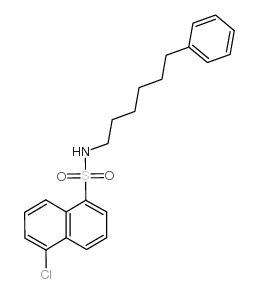Regulatory effects of platelet-derived growth factor-AA homodimer on migration of vascular smooth muscle cells.
N Koyama, N Morisaki, Y Saito, S Yoshida
文献索引:J. Biol. Chem. 267(32) , 22806-12, (1992)
全文:HTML全文
摘要
Migration of medial smooth muscle cells (SMC) into the intima is important in intimal thickening of atherosclerotic tissues. To study the functions of three isoforms of platelet-derived growth factor (PDGF) in atherosclerosis, we investigated their effects on SMC migration by Boyden's chamber method. Although PDGF-AB and PDGF-BB enhanced SMC migration dose-dependently, PDGF-AA did not enhance SMC migration, but instead inhibited SMC migration induced by PDGF-AB or PDGF-BB. PDGF-AA also inhibited SMC migration induced by two other migration factors, fibronectin and SMC-derived migration factor. PDGF-AA is considered to be coexpressed with transforming growth factor (TGF)-beta 1 in atherosclerotic tissues. Treatment of SMC with TGF-beta 1 reduced an autocrine migration activity from SMC. Studies using anti-PDGF antibody revealed that an increased secretion of PDGF-AA by TGF-beta 1 caused the reduced migration activity. cAMP increase by forskolin and dibutyryl cAMP suppressed SMC migration, whereas cAMP decrease by pertussis toxin had no effects on PDGF-AA-suppressed migration. In contrast, staurosporine, an inhibitor of protein kinase C, enhanced SMC migration and neutralized the inhibitory effect of PDGF-AA. These findings suggest that PDGF-AA regulates SMC migration in intimal thickening in atheroma formation and that protein kinase C may play an important role in the inhibitory mechanism of PDGF-AA.
相关化合物
| 结构式 | 名称/CAS号 | 分子式 | 全部文献 |
|---|---|---|---|
 |
5-氯-N-(6-苯基己基)-1-萘磺酰胺
CAS:102649-78-5 |
C22H24ClNO2S |
|
Stimulation of choline transport in cultured cells induced b...
1988-01-01 [Oncology 45(4) , 326-30, (1988)] |
|
N-(6-phenylhexyl)-5-chloro-1-naphthalenesulfonamide is one o...
1986-11-28 [Biochim. Biophys. Acta 889 , 236, (1986)] |
|
N-(6-phenylhexyl)-5-chloro-1-naphthalenesulfonamide, a novel...
1986-07-29 [Biochemistry 25 , 4179, (1986)] |
|
Evaluation of Salmonella live vaccines with chromosomal expr...
2009-06-08 [Vaccine 27 , 3780-7, (2009)] |
|
Manipulation of phototransductive membrane turnover by crab ...
[J. Comp. Physiol. A. Neuroethol. Sens. Neural. Behav. Physiol. 170(2) , 189-99, (1992)] |